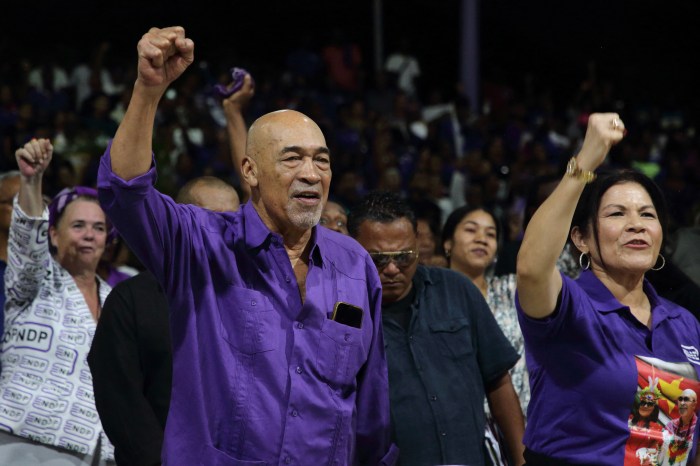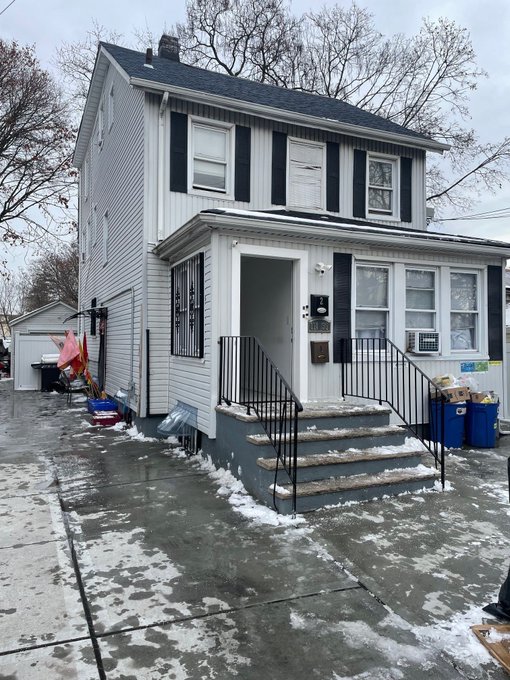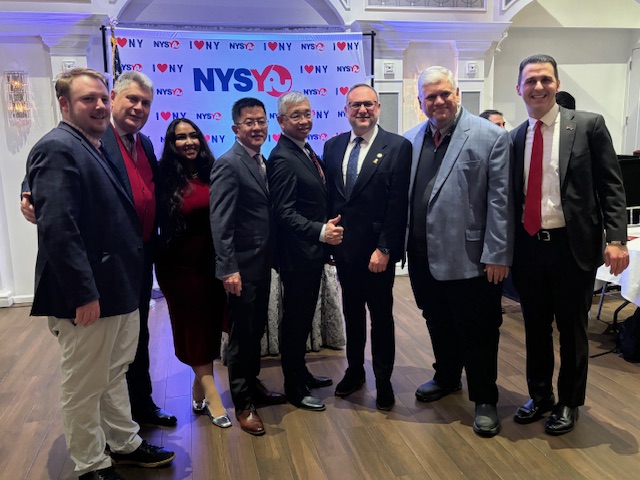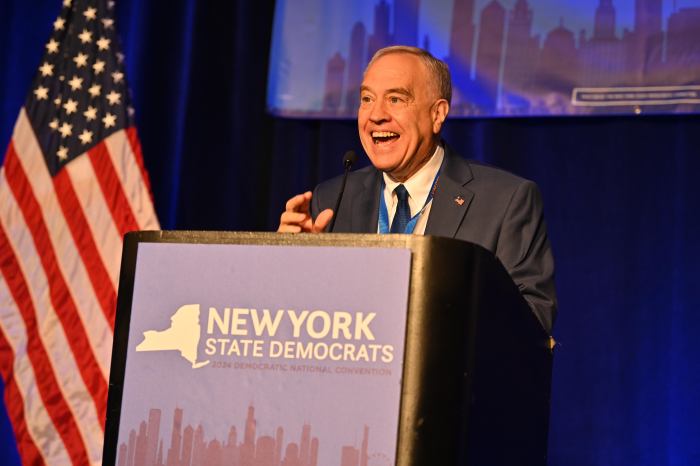Former West Indies wicket keeper Vincentian Michael Findlay has been standing up behind the wicket for former West Indies allrounder Barbadian Collis King.
In delivering the keynote address, on Aug. 18, on the 40th anniversary gala and awards ceremony of the Brooklyn-based Vincentian sports club, Hairoun, Findlay noted the draconian immigration policies being instituted in Great Britain and the United States.
The former West Indies cricket manager said about the United Kingdom (UK): “The most glaring of the cases so far is that of former West Indies all-rounder cricketer, Collis King.”
According to Findlay, King, one of West Indies 1979 Cricket World Cup heroes, now feels that England, his adopted country, is treating him like a “criminal” after he was effectively deported on a technicality surrounding a visa application.
Findlay said King, who would stay with his British wife in England when he was there, “had helped the West Indies to one of their most famous triumphs, the 1979 Cricket World Cup victory at Lord’s in London.
“However, the career of the 67-year-old, King who played nine Tests and 18 One Day Internationals, came to a premature end after he went to South Africa as part of the rebel tours,” Findlay told the ceremony at the Friends of Crown Heights Educational Center on Logan Street in East New York, Brooklyn. “In Yorkshire, he also coaches the local players.”
Findlay said King is “now stuck in Barbados, because of Britain’s immigration laws.
“He had his Barbadian passport confiscated by the Heathrow airport [in London] staff before he boarded a flight back to Barbados, because he was deemed to be at risk of absconding,” Findlay said. “It was handed back to him when he arrived in Barbados. That sort of treatment is usually reserved for criminals.”
King told the British Telegraph Sport from Barbados, according to Findlay: “I felt like I was treated like a criminal.
“It has really shaken me that after all that time that I can’t stay,” King said. “It really hit me for six. I have been playing cricket in the UK for many years, but I have always come back when my visa stated.
“I have never stayed longer than I was due to stay,” King added. “If I had six months to play in the leagues, I would always come back on time. Never once in 44 years have I overstayed my time.”
Findlay said King’s problems started when he was in England last year and applied for a spousal visa, giving him the right to remain in the country.
“It was rejected because he had applied while in the United Kingdom on a visitor’s visa,” Findlay said. “He was told that for a spousal visa he had to apply from his country of origin and was given 14 days to leave the UK, reported the Telegraph.”
Findlay said King had to return to Barbados to start the process again, adding that, “after more than three months of waiting, King still has no date for a hearing.”
“I was not born a British citizen, but I have been going to Britain long enough to feel part of the English set-up,” Findlay quoted King as saying. “You cannot come to a country for so many years without loving the place. I have been coming and going, loving the country, and that is the sad thing, really.”
Colin Graves, the chairman of the England and Wales Cricket Board (ECB), the governing body of cricket in England and Wales, recently offered to help King in his immigration fight, according to Cricinfo.
The online cricket publication reported that King, who starred in West Indies’ 1979 World Cup final victory, has spent more than 40 years living and working in the UK, alongside his native Barbados.
It said King’s story has emerged following a controversial crackdown by the UK Home Office, “although it is distinct from the issues affecting members of the Windrush generation who came to live and work in Britain after the Second World War.”
Graves was previously chairman of Dunnington Cricket Club in Yorkshire, where King has played and coached for 20 years, becoming a popular figure on the club scene, Cricinfo said.
It said Graves has offered to act as a referee for King and write a letter of support.
“I was staggered that his application was thrown out without any further investigation,” Graves told the Telegraph. “Someone just looked at it and said, ‘On your bike’ and he was out. Nobody seemed to bother to look at it.
“It was cold and that is what upset me,” he added. “They did not look at the individual; it was just another number on a file.”
From a cricket point of view in Yorkshire, Graves said King has been “a colossus.”
“He is known around all the clubs, and we will do everything we can from a cricket point of view, because he is helping with what we are trying to achieve in the recreational game,” Graves said.
Cricinfo said King has been unable to play for Dunnington this summer, and has spent the last four months waiting to hear about his status.
An attacking batsman, Cricinfo said King hit 86 from just 66 balls as he and Viv Richards “demolished England in the 1979 World Cup final.”
Although World Series Cricket and a rebel tour of South Africa ended his international career, Cricinfo said King “became a much-loved performer in the northern leagues of England, as well as turning out in county cricket for Glamorgan and Worcestershire.”
“When I tell people what’s going on, they say: ‘That can’t be right,’” King said. “But it is right, because here I am, stuck in Barbados not knowing when this will end.”




















